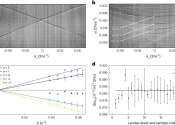Scientists at the MAJORANA Collaboration look for rule-violating electrons
In a new study published inNature Physics, scientists at the MAJORANA Collaboration have tested the stringency of charge conservation and Pauli's exclusion principles using underground detectors. Alessio Porcelli has published ...









